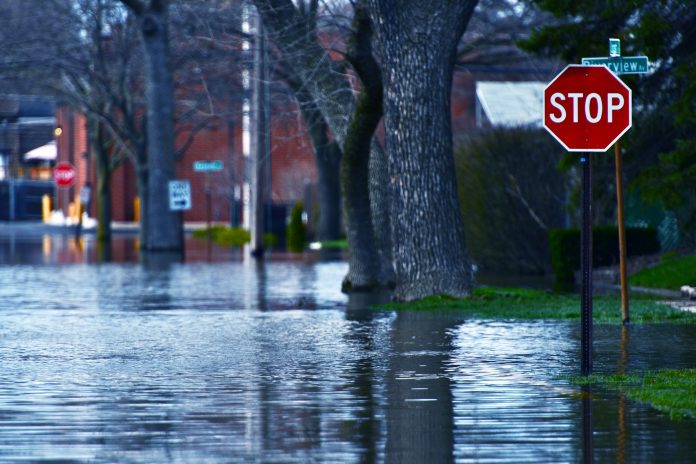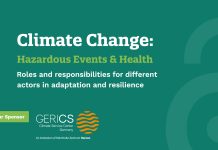New data finds economic growth decreases with more wet days with extreme rainfall, revealing an indirect way that climate change harms the economy
Scientists find that economic growth goes down when the number of wet days and days with extreme rainfall go up. In an analysis of over 1,500 regions over the past 40 years, a clear correlation is shown, suggesting that intensified daily rainfall driven by climate-change from burning oil and coal harms the global economy.
The analysis evaluated statistical data of sub-national economic output for 1554 regions worldwide, between 1979 and 2019. The scientists combined this data with high resolution rainfall data, as the combination of climatic and economic data is vital in the context of rain – which is a highly local phenomenon – to reveal the new findings about climate change and the economy.
Due to intense loading of the Earth’s atmosphere with greenhouse gases from fossil power plants and cars, human-induced global warming is causing intense weather extremes. Through this, warming air can hold more water vapour that eventually becomes rain, which is intensified and increased by climate change.
Although atmospheric dynamics make regional changes in annual averages more complicated, daily rainfall extremes are seen to be increasing globally due to this water vapour effect.
We can already see the effects of climate change through rainfall extremes
Leonie Wenz, who led the study, said: “This is about prosperity, and ultimately about people’s jobs. Economies across the world are slowed down by more wet days and extreme daily rainfall – an important insight that adds to our growing understanding of the true costs of climate change.
“Macro-economic assessments of climate impacts have so far focused mostly on temperature and considered – if at all – changes in rainfall only across longer time scales such as years or months, thus missing the complete picture.
“While more annual rainfall is generally good for economies, especially agriculturally dependent ones, the question is also how the rain is distributed across the days of the year. Intensified daily rainfall turns out to be bad, especially for wealthy, industrialized countries like the US, Japan, or Germany.”
Maximilian Kotz, first author of the study, added: “We identify a number of distinct effects on economic production, yet the most important one really is from extreme daily rainfall. This is because rainfall extremes are where we can already see the influence of climate change most clearly, and because they are intensifying almost everywhere across the world.”
“By destabilizing our climate we harm our economies”
Co-author Anders Levermann, said: “Our study reveals that it’s precisely the fingerprint of global warming in daily rainfall which have hefty economic effects that have not yet been accounted for but are highly relevant. Taking a closer look at short time scales instead of annual averages helps to understand what is going on: it’s the daily rainfall which poses the threat.
“It’s rather the climate shocks from weather extremes that threaten our way of life than the gradual changes. By destabilizing our climate we harm our economies. We have to make sure that our burning of fossil fuels does not destabilize our societies, too.”











